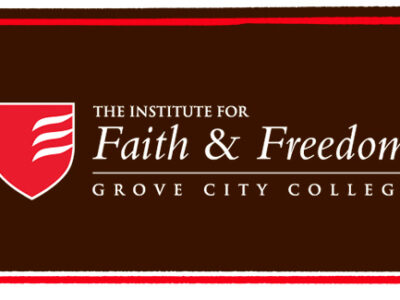In a recent column, I warned that private liberal arts colleges must adapt if they wish to survive and thrive in today’s economy. In making the point that they need to repackage the liberal arts curriculum to improve the employability of their graduates, I was by no means suggesting that the liberal arts tradition—the desire to develop well-rounded, broad-minded, and opened minded individuals—is passé or unimportant. In fact, I believe that such mental qualities are more important than ever.
While tomorrow’s college graduates deserve to be employable after investing over $100,000 for a bachelor’s degree from a liberal arts college, they also need to be prepared for a world that is changing at an accelerating rate. These changes are both geopolitical and technological.
Geopolitically, explosive economic growth is transforming erstwhile Third World nations into affluent societies and, in China’s case, a global power. Concurrent with this rush of billions into modernity, there are atavistic forces, represented by Kim’s personality cult in North Korea, and the apocalyptic fervor of various Islamists, seeking to annihilate modernity and plunge humanity into another Dark Age. How do we cope with these changes and challenges?
Technologically, there may be as much progress in the next century as in the previous twenty. The rate of increase in computing power is starting to rise exponentially. Current estimates are that a person graduating from college today will change careers nine or ten times. That estimate could prove low, since exponential technological progress will produce who-knows-how-many new creations, processes, discoveries, and applications for which words don’t even exist yet.
What will it mean to be human if computers can “think” far beyond our capabilities in 25 years? For example, will there be any need for composers if computers can effortlessly produce pleasing melodies? What forms will human labor assume if nanotechnology can make anything? Will we know how to be happy if such technology makes it practical for all humans to have whatever they want at negligible expense? Can we achieve harmony with other individuals and countries despite the stress of rapid change?
Clearly, our country and our world will need people who can think in accord with the liberal arts ideal—comprehensively, originally, flexibly, and helpfully. The thought leaders of tomorrow will need the ability to distill and synthesize issues of great complexity, and to help the masses find order and meaning amidst bewildering, convulsive changes. Will liberal arts colleges be up to the task? Only if they can curb certain illiberal tendencies that are present on some campuses: censorship, anti-Americanism, and disrespect of Christianity.
Liberal arts colleges do not foster open-minded thinking when they permit students (and the Iago-like professors who often manipulate them) to abuse, insult, and shout down those with whom they disagree. These intolerant hotheads have drowned out would-be guest speakers with chants of “fascist!” But who are the real fascists—those with minority opinions or those who censor them? Any college that cannot provide a respectful forum for the examination of diverse beliefs is an illiberal institution where ideological bigotry has replaced free inquiry. We see such bigotry in academic departments that behave like priesthoods, blackballing any scholar who does not adhere to the favored orthodoxy.
Liberal arts colleges are illiberal if the ideology of anti-American reigns. Open-minded inquiry and intellectual honesty demand that we transcend all unthinking biases, whether “my country is always right” or its polar opposite, “America is habitually wrong and fundamentally evil.” Professors who constantly bash America are not enlightened thinkers, as they suppose, but are intellectually infantile and warped. Of course our country isn’t perfect, and yes, 18th-century American males did not view the world through 21st-century lenses (just as we today don’t see through 24th-century eyes), but the United States has accomplished much good, which is why it has been the world’s favorite destination for immigrants for several centuries. Professors who won’t give a balanced appraisal of America are sowing seeds of ignorance and dishonesty.
Just as it has become fashionable in some quarters to downplay or ignore America’s multiple achievements, so it is with America’s dominant religion—Christianity. Many liberal arts faculties embrace multiculturalism and/or humanism so completely that they are hostile to Christianity. This is highly ironic, since most liberal arts colleges were established as the educational arms of various Christian denominations. It is also short-sighted, because even if one doesn’t accept Christianity’s doctrine of salvation, our society needs to retain the Christian ethical values that brought unprecedented freedom and prosperity to ever-larger numbers of human beings.
As we hurtle into a future of potentially confusing changes, our society needs more than ever the ballast of certain core beliefs about right and wrong, and clear moral guidelines for human interaction. In an era when we may be compelled to reexamine what it means to be human, we won’t get it right without learning about our Creator. How many liberal arts colleges today are prepared to explore that issue? Will the 21st century, with its mind-boggling pace of change and material progress, see the human race enter a new “golden age,” or will it all go horribly wrong like it did with the tower of Babel, when humans thought they had all the answers and ignored God?
We live in an amazing time. Let’s hope our liberal arts colleges can rise to the challenges facing us all.



